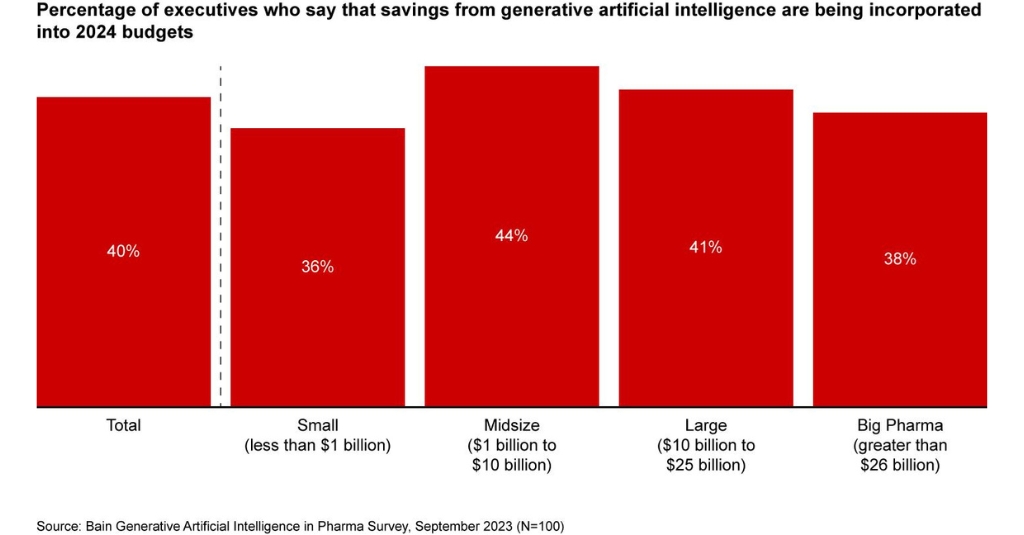Increase efficiencies and productivity by automating core reporting tasks for medical writing.
Automate core regulatory report documents across the CTD pyramid and dramatically accelerate submission timelines.
Increase efficiencies and productivity by automating core reporting tasks for medical writing.
Automate core regulatory report documents across the CTD pyramid and dramatically accelerate submission timelines.
In today’s fast-paced technological landscape, Generative AI has emerged as a captivating topic, gathering attention worldwide and driving discussions across industries. Artificial Intelligence (AI) is leading innovation and reshaping various sectors.
While Generative AI’s roots stretch back years, recent advancements have propelled it into the spotlight, offering opportunities for enhanced customer and employee experiences. Strategic investments in GenAI have driven significant growth and innovation within organizations, including in more regulated sectors like BioPharma. For businesses considering GenAI implementation and investment, here are five key considerations:
Generative AI presents opportunities in highly regulated spaces like pharmaceuticals, where accuracy is essential. The stakes are high in the drug development and approval process. Clinical trials lead to submissions to governing bodies like the FDA and EMA, organizations that uphold strict and exact standards.
To maximize the potential of this technology and stay ahead of the curve, firms should assess value, establish robust data platforms and foster strategic partnerships. By identifying use cases with a high probability of success and collaborating with expert partners, companies can tap into a competitive advantage while ensuring compliance within industry standards.
Rather than feeling bogged down with administrative tasks and overwhelming data sets, Generative AI can drastically increase short-term and long-term productivity across teams. Oftentimes, mundane tasks create low morale, lack of motivation and burnout. Freeing employees from such tasks will foster growth, leading them to feel empowered and valued in an organization. This technology can help remove inefficiencies – while allowing employees to focus on higher-value decision making tasks.
AI and other innovative technologies help target and expedite a wide range of opportunities in drug development, revealing previously overlooked therapies. By determining what innovative technologies are needed to identify and then streamline the clinical trial process, teams can accelerate access to life changing therapies while aligning with responsible AI principles of security, fairness, transparency and reliability.
With rising costs in pharmaceutical development, evaluating the ROI potential of your technology partners is a must. GenAI applications can save thousands of hours in writing and review time. Investments like Yseop Copilot for medical and regulatory writing highlight the commitment to leveraging AI for expedited drug introductions and reduced time-to-market. Eli Lilly‘s adoption of Yseop’s AI-driven content automation solutions revolutionized their regulatory process, reducing patient narrative composition time from 4 hours to just 4 seconds, exemplifying efficient AI utilization in pharmaceuticals.
“The potential cost savings achieved through deploying AI in drug discovery are just as impressive as the faster timelines. A Wellcome report estimates that AI-driven research and development could slash costs by 25% to 50%, enabling biopharmaceutical companies to conceivably redirect those funds toward additional research that leads to a more robust drug discovery pipeline.” Source

5. Ensure Visibility and Governance
With the approval of the EU’s AI Act, visibility and governance is more essential than ever. The Act establishes rules for AI systems, highlighting risk-based approaches and enforcement mechanisms. If implementing an AI tool, teams need to adhere to regulations and responsible AI practices. By aligning with these factors, businesses will ensure compliance while navigating the complexities of Generative AI best practices.
At Yseop, we are committed to responsible AI use, guided by principles of ethical behavior, transparency, and compliance with all relevant regulations. Yseop ensures AI systems are fair and designed with privacy and security in mind. Continuous monitoring and stakeholder engagement are key components, and the team regularly updates our policies to reflect the latest in AI technology and ethics.
As this technology is here to stay, staying ahead will be crucial for how firms across regulated industries excel. Working with platform providers who implement this technology with transparency and explainability is the key to success. To learn more about how Yseop can help your organization’s content automation needs, please contact hello@yseop.com.